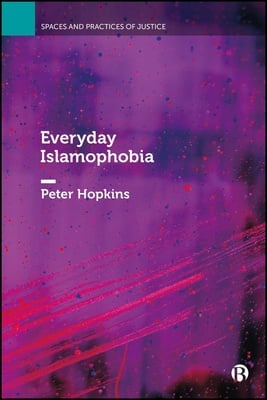The use of hotels to accommodate asylum seekers in the UK has received widespread news coverage for several months now. Initially, attention was focused on protests outside the Bell Hotel in Epping, but protests soon spread nationwide, escalating most recently into mass mobilisations. On 13 September, more than 100,000 people joined a high-profile anti-migrant rally organised by Tommy Robinson, with St George’s flags hung across towns and cities ever since in a show of nationalist defiance.
Among the protesters of asylum hotels are groups such as the Homeland Party (a splinter group of Patriotic Alternative), a far-right party promoting remigration policies. Chants of “Stop the boats” and “Send them home” can be heard during many of these protests, with counterdemonstrators shouting “Refugees are welcome here”.
The use of hotels to accommodate asylum seekers started in 2020 under the Conservatives due to a shortage of long-term housing and a backlog of asylum applications. In 2023, nearly 45 per cent of asylum seekers were accommodated in asylum hotels across the UK. The use of asylum hotels generally declined between 2023 and 2024, but it continued to rise in London.
Notable in the coverage of these protests and the narratives that surround them is the general absence of reference to Islamophobia and anti-Muslim racism. The obsessive focus on migration and asylum – reinforced by mainstream politicians and the media – means that Islamophobia is often sidelined and rarely referred to in this context.
The mainstreaming of far-right ideas
The main reason we keep hearing about issues of migration is that they have increasingly been given a platform over the last 20 years. Several UK prime ministers and leading politicians have drawn much attention to such issues. Migration was central to David Cameron’s campaign for a referendum on EU membership, and while Home Secretary, Teresa May, sent out ‘Go home’ vans targeting migrants.
Such a focus is not confined to the Conservative Party; David Miliband had migration as one of his five key priorities in 2015 and the current Labour leadership also continues to emphasise it in its communications. The fact that these issues are discussed so frequently raises the platform given to the likes of Nigel Farage, who received excessive coverage in elections compared with many other party leaders.
When seeking to be re-elected as Prime Minister, Rishi Sunak stood on multiple occasions at a podium marked with the message ‘Stop the boats’. This gave the impression that migration was the UK’s single most pressing issue, overshadowing education, health care, transport, climate change and a whole host of other significant issues.
There is an obsession with migration. It has been placed top of the agenda, yet numbers remain very small, with the UK being home to only around 0.3 per cent of the world’s refugees. This makes it crucial to ask why certain topics dominate public debate while issues like Islamophobia are overlooked.
Absences and silences
Islamophobia can range from explicit and aggressive hate crimes to forms of anti-Muslim racism that may be more subtle, such as disapproving looks, glares or social exclusion. Absences can also be an important feature of Islamophobia – space being denied to people or their right to participation being closed off. Absence is also about the ways in which Islamophobia may be missing from discussion, even when a range of other closely related issues are frequently mentioned.
Such absences contribute to – and reinforce – the idea that Muslims and other minority communities ‘do not matter’. So, Islamophobia can be pushed under the carpet, not referred to or overlooked, and is thus seen as invalid and not worth speaking about. This may be due to concerns about discussing a topic presumed to be sensitive.
Such absences can also be forms of silencing, which becomes a tool of oppression as Muslims are prevented from speaking, or denied the opportunity to engage in dialogue. Silence can also be a political act in that it can be a deliberate response to exclusion or a conscious decision to avoid an issue that you do not agree with, or shun people you are wary of or mistrust.
Everyday Islamophobia
The chants of those protesting outside asylum hotels reinforce problematic conspiracy theories such as the ‘great replacement’, which claims that rapid population change will replace White Christian Europeans with non-White Muslims. This narrative is inherently Islamophobic.
Moreover, these protests are very intimidating to diverse ethnic and religious minority groups, including Muslims. Many fear for their safety, recalling the riots of summer 2024, and anticipate anti-Muslim racism in the aftermath.
The wider climate of hostility is not just rhetorical but also violent. On 9 September in Oldbury, a Sikh woman in her 20s reported being raped by two White men while on her way to work. Although she was Sikh, not Muslim, the racist and misogynistic violence she endured reflects the same far-right hatred being stoked in anti-migrant and Islamophobic protests.
Addressing this requires a committed anti-racist approach: naming and challenging Islamophobia, raising awareness, dismantling discriminatory practices and offering support to affected communities.
Peter Hopkins is Professor of Social Geography at Newcastle University.
 Everyday Islamophobia by Peter Hopkins is available to read open access on Bristol University Press Digital here.
Everyday Islamophobia by Peter Hopkins is available to read open access on Bristol University Press Digital here.
Bristol University Press/Policy Press newsletter subscribers receive a 25% discount – sign up here.
Follow Transforming Society so we can let you know when new articles publish.
The views and opinions expressed on this blog site are solely those of the original blog post authors and other contributors. These views and opinions do not necessarily represent those of the Policy Press and/or any/all contributors to this site.
Image credit: Balesstudio via Unsplash


